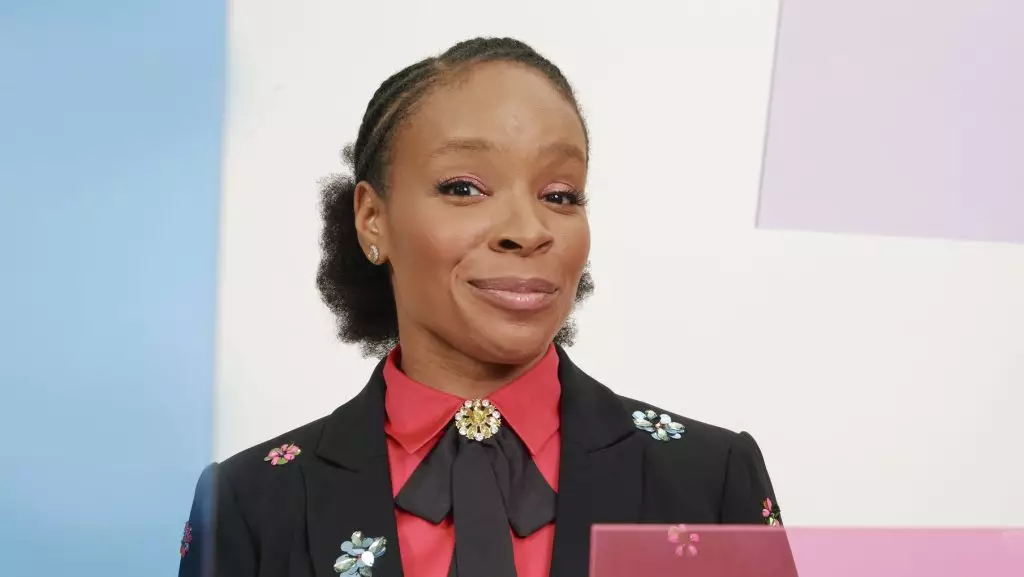The White House Correspondents’ Association (WHCA) has made waves this year by ditching its long-standing tradition of featuring a comedian at its annual dinner, which is set to take place on April 26. As announced by WHCA President Eugene Daniels, the decision to forego a comedic act aims to refocus the event on the significant contributions of journalists rather than the divisive, often incendiary humor that has colored past dinners. In a climate where journalism faces unprecedented threats and scrutiny, this pivot signifies a broader effort to restore dignity and respect for the profession.
While the announcement generated various reactions, one cannot ignore the implications of abandoning a comedian like Amber Ruffin, who was initially slated to perform. Known for her sharp wit and critical commentary, Ruffin’s humor often pokes fun at the political status quo, particularly during Donald Trump’s presidency. Her involvement might have taken a turn toward uncomfortable satire, which could have elicited mixed reactions from attendees. By opting out of comedic performances this year, the WHCA seems to prioritize unity and celebration of journalistic integrity over the potential minefield of political humor.
Striking a Balance Amidst Political Tensions
Ruffin’s planned presence at the dinner drew ire from the Trump administration, which criticized her previous comedic jabs at the former president. This sentiment echoes the complicated relationship between comedians and political figures, particularly during turbulent times. It raises a pertinent question: should comedians bear the responsibility of lightening the mood, even when their humor may inadvertently contribute to further divide? The WHCA’s decision appears to answer that inquiry with a resounding “no,” emphasizing the importance of decorum in such a distinguished setting.
This decision also highlights the WHCA’s evolution in responding to the dynamics of power and accountability. With the White House allegedly attempting to control press access more strictly, maintaining journalistic freedom has never been more critical. This year’s dinner will not only serve to honor journalistic excellence but also to reaffirm the foundational American value of a free and independent press, particularly at a time when those very principles are challenged.
Shifting Focus: Awards and Mentorship
President Daniels’ letter to WHCA members emphasizes that the evening will shift its spotlight from entertainment to celebrating the hard work of journalists and the future of journalism itself. By prioritizing scholarships and mentorship for aspiring journalists, the WHCA reaffirms its commitment to nurturing new talent capable of navigating the ever-changing political landscape. This focus is a powerful statement, underscoring that the future of press freedom depends not solely on established journalists but also on the upcoming generation who will shape the narrative.
The dinner, usually laden with humor and various performances, is now poised to become a more solemn affair, a sanctuary of reverence for journalism. This shift sends a message that the WHCA recognizes the need for introspection and evolution amid societal changes. The results of this change could not be more critical, given that the craft of journalism is not merely a profession but an essential pillar of democracy.
The Cost of Comedic Relevance
Historically, the WHCA has walked a tightrope by inviting comedians to engage in political humor, which sometimes results in tension and discomfort for those attending, especially if the jokes land too close to home. Many notable incidents, like Stephen Colbert’s controversial performance in front of George W. Bush in 2006 or Michelle Wolf’s biting comments at the 2018 dinner, have left hard feelings and raised crucial questions about the appropriateness of using humor as a lens to critique political figures directly.
The absence of humor this year indicates a desire to move beyond scorn and focus on the core mission: the honor and celebration of journalism. Although some might argue that a comedian can create a necessary levity, avoiding potential pitfalls with incisive humor reflects a maturing understanding of the dinner’s purpose. By doing so, the WHCA appears to be aligning itself with a more supportive and harmonious environment rather than one riddled with confrontation.
A Future of Dignity and Honor
Ultimately, the WHCA’s decision to drop the comedic performance resonates with a significant shift in how journalism and its practitioners are perceived and represented. As Daniel articulated in his letter, the dinner aims to reflect the importance of free and independent journalism at a time when it is under threat.
While humour has played an essential role in past dinners, the need for serious discussions surrounding press freedom has never been more pressing. The WHCA’s initiative sets a benchmark for other organizations grappling with similar dilemmas of tradition versus evolution. By prioritizing an environment of respect and honoring journalistic integrity, the association makes a compelling case for how adapting to the political climate can yield a stronger commitment to freedom of the press.
